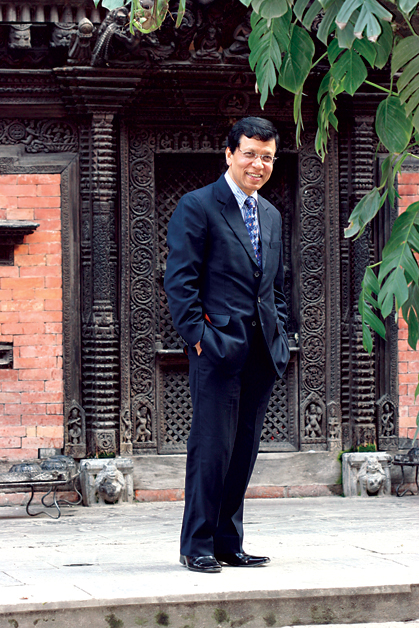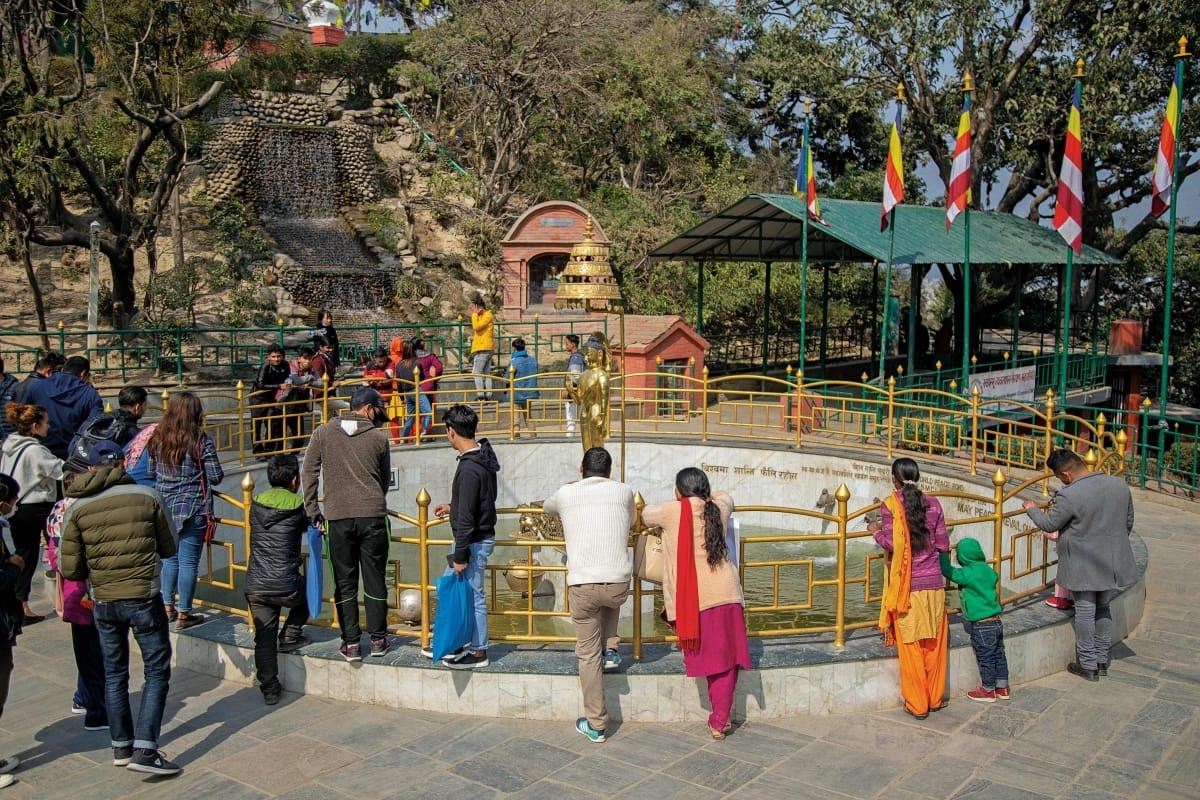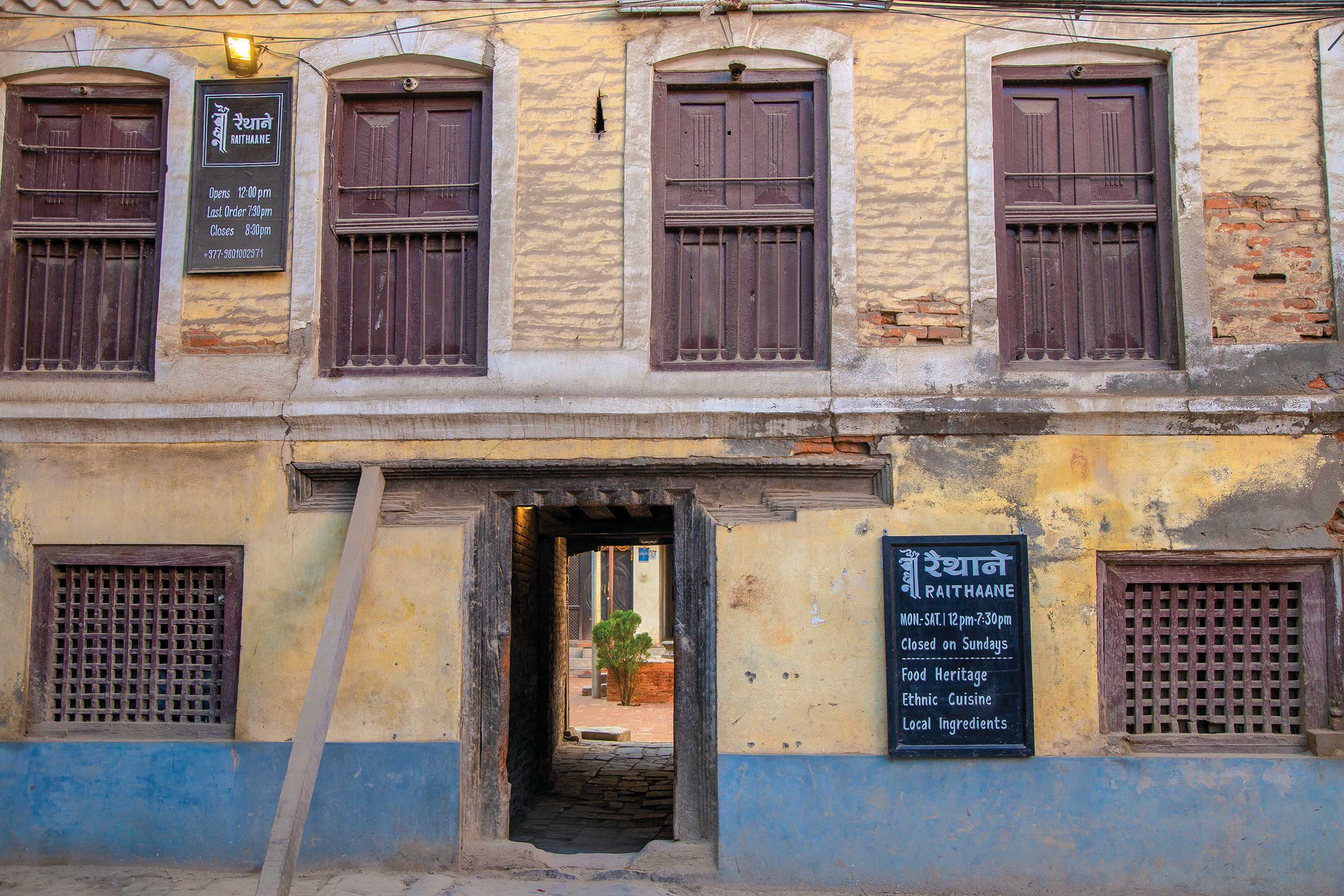As an ADB economist he worked in China when the country didn’t have a decent hotel, let alone of the five star category—even in Beijing. He was sent along with five other members for setting up first ADB office in China. “We had to literally beg the hotel owner nearby our temporary office not to forget to prepare food for us,” says Omkar Shrestha, now a visiting senior research fellow with the Institute of Southeast Asian Studies (ISEAS) in Singapore. “For us, who still have in our memory the glimpses of the country’s gloom period, the incredible stride China has taken in less than 25 years is simply awe-inspiring.”
 China is the second largest economy in the world today, and just 25 years ago it inspired nothing but hopelessness—just the way Nepal does now. Only the situation here, too, is so realistically alterable and, if we are to believe Mr Shrestha, Nepal can become as flourishing as the Land of Dragon; but, before pointing out the ways to propel Nepal along the path of prosperity, Shrestha cautions us on the need to bring it back from the road to perdition.
China is the second largest economy in the world today, and just 25 years ago it inspired nothing but hopelessness—just the way Nepal does now. Only the situation here, too, is so realistically alterable and, if we are to believe Mr Shrestha, Nepal can become as flourishing as the Land of Dragon; but, before pointing out the ways to propel Nepal along the path of prosperity, Shrestha cautions us on the need to bring it back from the road to perdition.
At a time when the world has set spotlights on two of our giant neighbors, we need to steal some moment to tell the world that we matter. “We cannot afford to be irrelevant,” says Shrestha, with a certain feverish urgency. “There are many island countries in the world that if flooded and sink underwater the world
wouldn’t even notice. But if same thing happens to Singapore the whole world will rush to ensure that it is protected against any disaster. Why? Because Singapore matters to the world.”
“For a country to be relevant it either has to be so immensely gifted by nature that the world notices, or should have something precious left behind by the ancestors, like some kind of treasure or precious heritage that it can proudly show to the world. If a country does not have either of these, then a third and only option for a country is the leadership,” says Shrestha, an East-West Center scholar in economics. Singapore neither had natural resources or any kind of heritage. But still they could build a nation that mattered to the world because of the leadership. “The leadership should be such that it inspires each and every person to become the source of the country’s strength,” he says.
Omkar Shrestha is in the category of optimists who believe ‘It’s never too late to begin’. “It does not matter where we are as long as we are moving in the right direction,” he says. So he sets out to share with us host of ways that could make us relevant to the world.
“We have a host of human heritages left behind by our ancestors. If UNESCO recognizes some place or site as a World Heritage Site that means they are not just recognizing the achievement of a particular people. They are honoring the accomplishment for the whole of humanity,” he says. Between Patan, Bhaktapur and Kathmandu, within 7 to 8 kilometers there are several cultural heritage sites recognized by UNESCO. “Our country has the most densely located heritage sites in the world. Nepal should be declared ‘the capital of cultural heritage sites’,” says Shrestha. It is impossible to see so many things in such a short time anywhere else in the world. To emphasize the importance of heritages Shrestha shares with us the controversy between two countries. “Do you know that there is a fight going on between Cambodia and Thailand over a temple that UNESCO recognized as a cultural heritage site,” he says. “Nobody from either country ever noticed it earlier. Now both countries claim that the temple belongs to them. The temple is in Cambodia but, ironically, the road that leads to the temple is in Thailand.” Heritage is a matter of pride for all. It reminds us what we are capable of. “So if our generation could not build anything, it should preserve and promote what is being given, for our own benefit,” says Shrestha.
Religious tourism, according to Shrestha, is another sector we need to tap. “Why is Mecca so important to Muslims all over the world? Why do they feel they ought to visit the shrine at least once in a year?” asks Shrestha. “If the Mecca is threatened, it does not matter whether a Muslim is from Indonesia, Bangladesh or Malayasia, they will rise up in one clamor to defend and protect it. Shouldn’t Buddhists all over the world feel as strongly for Lumbini as Muslims feel for Mecca?” he says. “We need to develop Lumbini along those lines and tell the world that it was here that the seed of compassion was sown in the heart of young prince Siddartha.” Pashupatinath, likewise, is one of the most revered shrine for Hindus, says Shrestha and adds, “We have failed to attract millions of tourists from just across the border who await an opportunity to visit the temple.” It is naïve to think that we can reduce trade deficit with India by exporting commodities. But we can achieve a lot if we capitalize on our strength, that is, tourism and service industry.
Speaking of tourism, Shrestha says that our landscape, mild weather, culture and low cost factor are a great boon for tourism industry. People would love to spend more time here than in any other country, he says. “Pokhara is so much appreciated by tourists. But we have thousand of Pokharas,” says Shrestha. “Nature has given us many places that can be developed into Pokhara.” Vietnam, says Shrestha, was devastated by war. But vast number of tourists flock the country today. Vietnam conducted a survey in which it was found that the increasing number of tourists who visited the country were repeat visitors. “Nepal is one of those countries that people like to visit more than once. But we have to create an environment where people don’t have to think twice,” he says.
According to Shrestha silver industry or aged tourists is another promising sector that we need to cash in on. “Japan is one of the countries from where rich but retired and ageing tourists can be brought to Nepal,” he says. Japanese are looking for a comfortable place for the elderly with adequate facilities and mild weather. The Philippines and Thailand are trying hard to get all those aged tourists in their countries. “The advantages we have over The Philippines and Thailand is that we have mild weather, rich culture, and Japanese love for Buddhism,” says Shrestha. “We just have to improve our medical services and train staff in the Japanese language.”
Hydropower, says Shrestha, as everyone knows could be one of our major strengths. “If we develop hydropower we can be to South Asia what Saudi Arabia is to the world in terms of petroleum,” he says. The hydroelectricity generated here will be the lifeline of the power starved industries of our neighboring countries. “If we have something like that, that has implications beyond the border, suddenly our problems will not only be of ours. Everybody will get involved to ensure that everything goes well here,” he says.
Nepal is land-locked, sandwiched between two great countries. But Shrestha does not think of it as a problem as most of us do. “If you have rock, you can either make a wall and be isolated or build a bridge to connect. If you make a wall no one will care about you. If you build bridge you are open to immense opportunities,” he says. The trade between countries of East Asia is 30 percent, whereas between South Asian countries is barely 2 percent. “In economic analyses that implies that the countries of the regions are not on talking terms,” says Shrestha. We have to stop lamenting about being land locked, he says, and instead become a bridge between two of the world’s fastest growing economies. “When you play cards you might get the most hopeless cards, but your skill lies in how you turn the cards to your advantage,” he says. “We can choose friends, but not neighbors and, since every country works in its interest, there is no point being skeptical about our neighbors’ intentions,” he says. “Therefore, our leadership must play its cards well so that our country benefits in whatever ways possible.”
The future world is going to be the knowledge world and educated youth is a social insurance. Shrestha is a bit disappointed about the education scene here. “If we lag behind in that particular field, the world will not wait for us,” he says. Human talent defines a nation’s future. Resources that are under the ground are important, but even more important is the human talent above the ground that is going to make use of it. “Shaping human talent is in our hands. We can develop or let it rot and face the grave consequences.”
Much has to do with leadership, but one cannot give a clean chit to Nepalese people who, Shrestha thinks, are lazy. “You just have to see how hardworking and diligent people are in Japan or Vietnam,” he says. “I see the youth here idling around. They haven’t yet assessed the urgency,” says Shrestha, with a clear hint at some ominous repercussions.
“We have just failed to turn the wheel on. We have the resources and advantages many countries did not have when they started out,” says Shrestha. Once we have set the wheel in motion we can hope to grow in the lines of China or India—in proportion, if not in scale.











